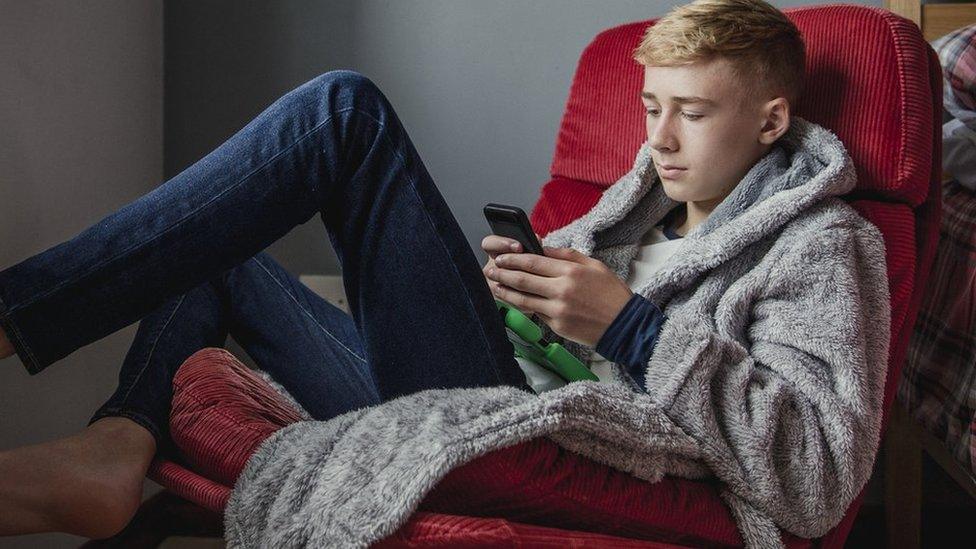Welsh teens' lost sleep and no breakfast
- Published
- comments
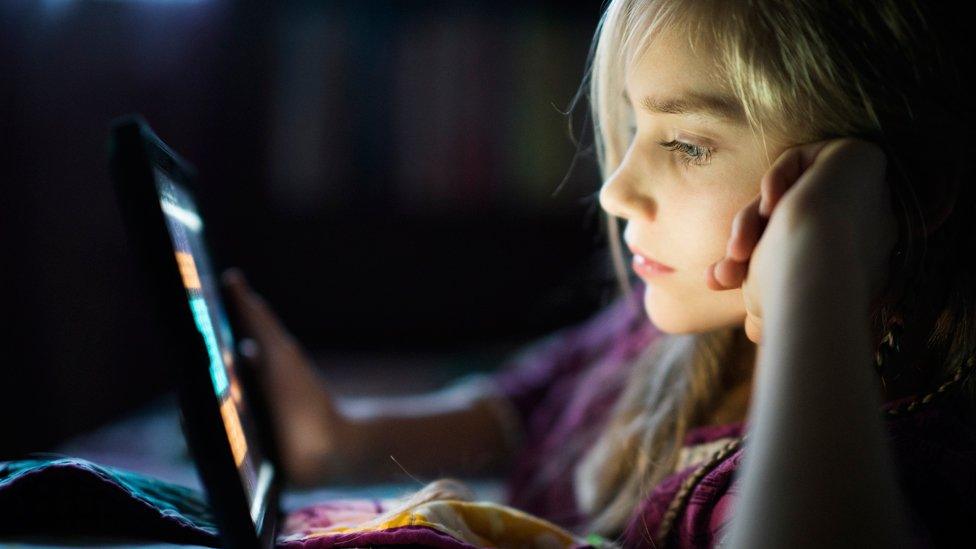
Late nights on mobiles and computer screens, problems sleeping and then skipping breakfast the next day.
This is a picture of life for many Welsh teenagers drawn from what is said to be the largest study of its kind.
The health and wellbeing of nearly 104,000 pupils has been researched by Cardiff university - and most are happy with life and school.
But notable inequalities were found among 11 to 16-year-olds, asked about issues from bullying to loneliness.
Regular smoking and drinking alcohol rates have dropped, as has the proportion of pupils having their first sexual experience at a young age.
But physical activity has significantly worsened - and there are challenges from new technologies.

Going to bed late
More boys are going to bed later than girls on a school night - and the difference widens as the proportion rises with age.
More from poorer families also reported usually going to bed after 23:00.
On screens late too

A third of boys (compared to 28% of girls) also report still being on their mobiles or computers after 23:00 on typical school nights. That includes nearly a quarter after midnight and 8% saying 02:00 or later.
This again rose as pupils got older, with 46% of Year 11 students using their devices after 23:00.

Problematic social media use
More girls (20%) than boys (15%) are classified as "problematic" social media users - those who by their answers to the amount of time they spent on it were judged to be within a scale for excessive use.
It gets worse as girls get older but peaks at Year 10.
Those leading the research say too much social media use outside children's immediate circle of friends could lead to anxiety and mental health issues and those young people will spend less time doing other things and escape more from the world around them.
Breakfasts - how many miss out?

More than half of children eat breakfast daily during the school week - but 22% skip it completely. More boys than girls have breakfast and that gap widens as they get older. Not a surprising figure but more children from poorer families also miss breakfasts. Only 42% of children from poorer backgrounds eat breakfast every day.
By the time they are in Year 11, 53% of boys and only 36% of girls have breakfast every day.
"Not having breakfast can have quite a lot of impact - it means you're more likely to be snacking throughout the day, more sugar and a quick carb fix," said Prof Simon Murphy, director of Cardiff University's Centre for the Development and Evaluation of Complex Interventions for Public Health Improvement (DECIPHer), which is behind the research.
"For school, it means you concentrate less, you're more irritable and your whole learning experience is compromised."
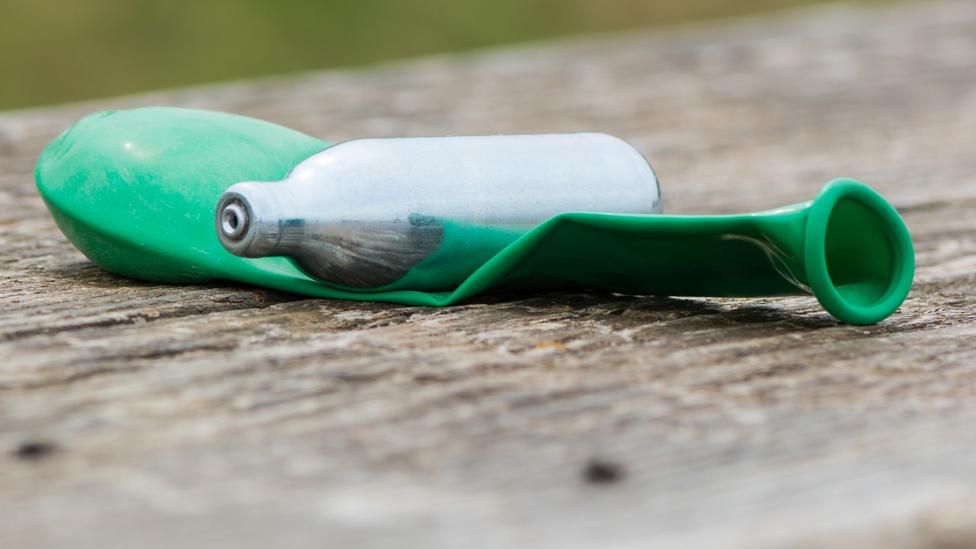
More pupils reported use of laughing gas (nitrous oxide) than cannabis
Other findings
Physical activity - a "stark decline" for both boys and girls as they get older, with only 7% of girls in Year 11 doing more than an hour a day (compared to 22% of Year 7 girls and 17% of Year 11 boys)
Cyber-bullying - 13% had been victims once or twice over the last couple of months, higher for girls - 23% compared to 15% boys
Sexting - 11% had sent a "sext" but this rises to 25% of Year 11 pupils
Sex - nearly all (94%) of sexually-active teenagers first had sex below the age of consent, although the most frequently cited age at first sex was 15 years old (45%)
Smoking - 9% of Year 11 pupils smoked, 59% had tried a cigarette by 14 or 15; 7% of Year 11 pupils used e-cigs less than weekly, 11% of pupils had tried them once
Alcohol - 17% of Year 11 pupils drink weekly but 48% of all pupils questioned do not drink.
Drugs - 20% (42% of Year 11) pupils had been offered cannabis over the last year, only 2% used it more than 30 days in a year; laughing gas was the most commonly used drug (8%)

These Year 10 pupils at St Cyres in Penarth are used to iPads for school work but see the importance of a good night's sleep
What time do you turn off and turn in?
Year 10 pupils at St Cyres in Penarth were asked when they stopped using their phones.
Radhiya said: "Probably the latest is 10pm - because our work is so consistently on technology, with Google Classroom and everything - you need to make sure you go to bed at this time, otherwise you're going to be tired in the morning."
Joe added: "I usually turn my phone off around 10.20pm. I do sport every day and revision on top so I find time to look at it for 20 minutes then it's off."
Will said: "It's normally about 10.30pm when I go to bed, check social media, Instagram, Snapchat and then turn off at something to 11, maybe? It becomes a bit of a priority to stay up late to do my revision."
But for Mimi it was "half past nine, every night". She added: "I'm one of those people who can't function if I don't get enough sleep."
Niccolo said: "Phones and iPads are the future - it's about improving. Ok, spending four hours straight on a screen might be dangerous but we're all sensible and know that's bad for us."

Prof Murphy said the survey has involved 65% of children in every secondary school in Wales which was unique in its scale and scope - and would give each school an insight into potential issues as well as policy-makers.
"For schools, they have their own data so they can say 'social media use is a problem, let's do something about it' - so we're interested over time to see where the innovation is at the chalk face," he said.
It could also bring more awareness for parents.
"If your child is one of the 15% going to sleep after midnight in a school week, then it's knowing that's not normal compared to the rest of the population," added Prof Murphy.
"How you deal with those things? A lot comes down to parenting confidence and skills and these are often established in early parenting so it's support and skills which are important here."
Lucy O'Loughlin, a consultant at Public Health Wales said there were differences between passive screens and more interactive screens - including gaming - in terms of the impact on sleep.
"It's about keeping on top of all the new technologies as it develops, and ensuring the advice develops as quickly as the technology is."
- Published15 May 2019
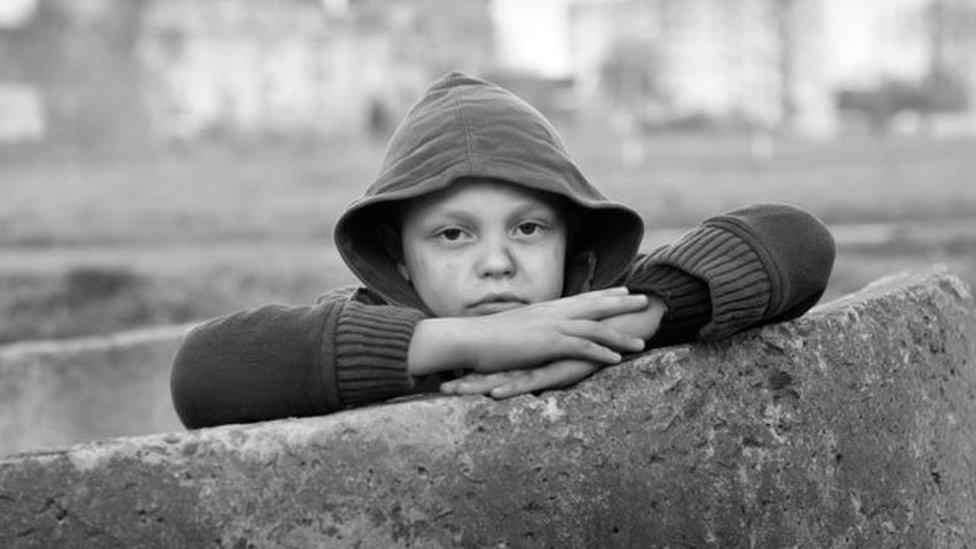
- Published17 January 2019

- Published4 January 2019
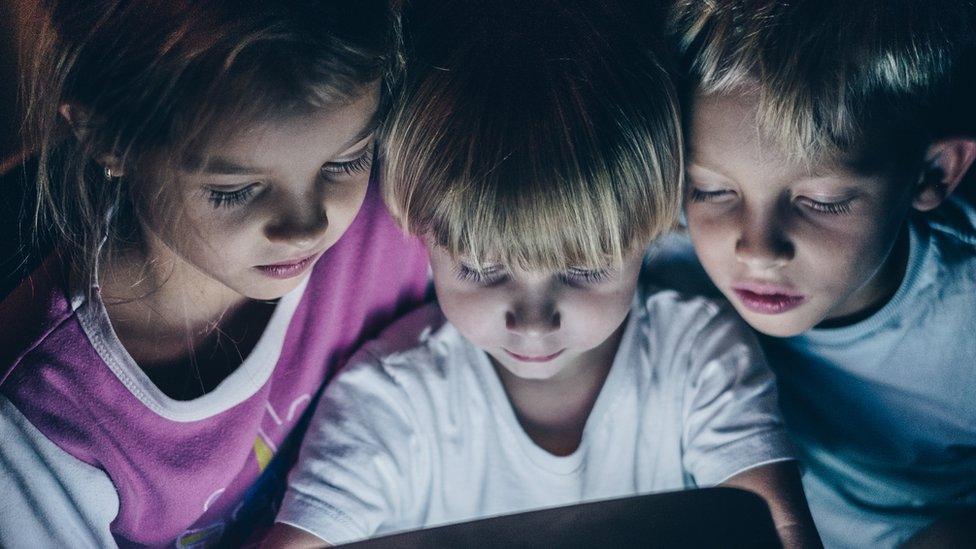
- Published4 January 2019
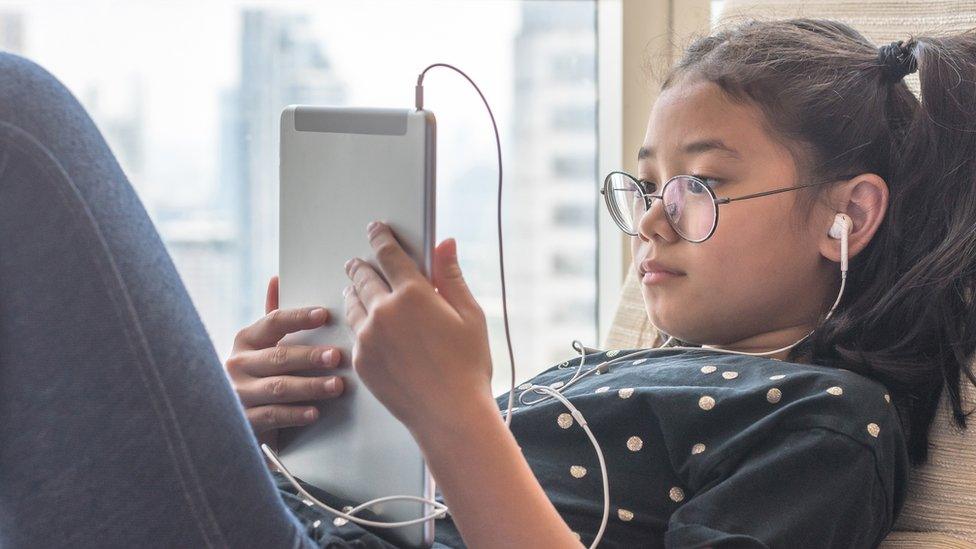
- Published4 January 2019
